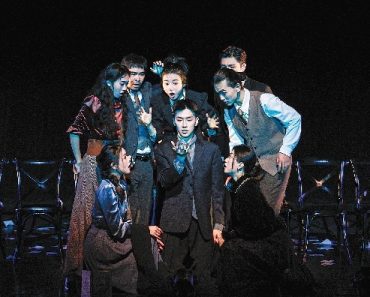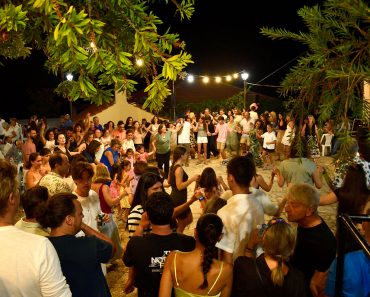The St. Nicholas Greek Orthodox Church in Central West End hosted its 108th annual St. Nicholas Greek festival Labor Day weekend, Aug. 30 to Sept. 1. The historic church aims to spread the beauty of Greek culture to St. Louisans through food, cultural dance and music.
The festival is run by parish staff, committee leaders and volunteers from all over St. Louis. It is not uncommon to see young kids bussing tables and cheerful yia yia’s, or grandmothers, preparing food in the small church kitchen. The food lines weave throughout the church and out the door, proving how popular it is. Live Greek music, often featuring the bouzouki, plays throughout the festival.
The festival not only brings the community of St. Louis together, but it also brings together the members of St. Nicholas. The parishioners work for three days straight to ensure the festival runs smoothly.
According to Carol Kamburis, lifelong parishioner and co-chair of the St. Nicholas Greek festival, the festival is a purely volunteer-driven fundraiser to support the church.
“We Greeks love to host,” Kamburis said with a grin, “we love to have people enjoy our food, music and dances in a way of sharing our culture with everyone.”
The main attraction is the diverse array of Greek foods offered. A crowd favorite is the gyro – seasoned lamb meat served in pita and topped with tzatziki.

An annual festivalgoer, Josh Peck, said he “always comes for the baklava sundaes.” Although food is the incentive, Peck emphasizes the importance of learning about different cultures in general. Thanks to the many festivals and cultural events in the area, residents of larger cities find different cultures more accessible.
The festival is topped off with traditional Greek dancing done by groups of all ages. The dances are performed while wearing traditional Greek attire. The dancers are constantly linked either shoulder to shoulder or hand in hand. The dance group performs various Greek folk dances, but “Zorba” was the most recognizable among the sea of people.
Year after year, the festival draws communities together, offering the same celebration locals have come to expect and appreciate.







